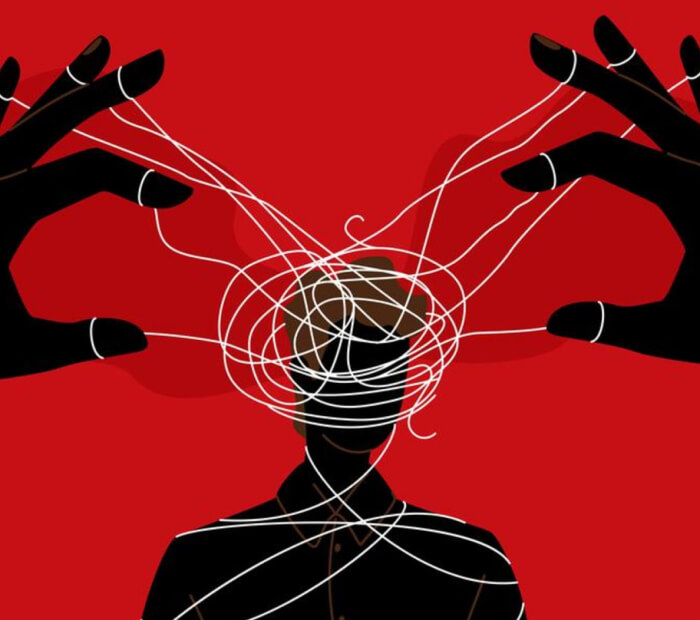Entering a relationship is meant to bring joy, but sometimes, it leads to toxic dynamics that can be challenging to recognize. In this blog, we’ll unravel the subtle signs that might indicate you’re stuck in a Recognizing Toxic Relationships. Understanding these cues is crucial; it empowers you to make informed decisions about your well-being.
From controlling behaviors to emotional manipulation, we’ll delve into 25 indicators that can help you identify toxic patterns. Let’s navigate these warning signs together, shedding light on acknowledging them for your emotional and mental health in relationships.
What is a Toxic Relationship?
A toxic relationship is an unhealthy and harmful connection between individuals. In such a dynamic, one or both partners exhibit behaviors that damage emotional, mental, or physical well-being. Toxicity often manifests through control, manipulation, and a lack of empathy.
These relationships hinder personal growth and foster a hostile environment, leaving individuals feeling drained and trapped. Recognizing toxic patterns is vital for breaking free from these destructive cycles. By understanding what constitutes a toxic relationship, individuals can prioritize their health and seek healthier connections that promote mutual respect, understanding, and growth.
Here is how to Recognize a Toxic Relationship
1. Early Signs Of A Toxic Relationship
Early signs of a toxic relationship often emerge through control and isolation. It raises red flags when someone monitors your every move and dictates your social interactions.
This controlling behavior, from deciding who you spend time with to alienating you from friends and family, can create a suffocating environment. Understanding these warning signs is crucial for maintaining healthy connections and recognizing when a relationship becomes unhealthy.
2. Communication Red Flags
In relationships, communication should build, not break. Yet, red flags appear when criticism and a lack of empathy take center stage. Demeaning language and undermining self-esteem create a toxic atmosphere.
Moreover, when your feelings are dismissed or trivialized, it hinders emotional connection. Recognizing these communication pitfalls is essential for fostering healthier connections, emphasizing mutual respect, and promoting emotional well-being in relationships. It’s one of the toxic relationship signs in a relationship.
3. Emotional Manipulation
Emotional manipulation can be a silent destroyer in relationships, with gaslighting and emotional blackmail being key culprits. Gaslighting involves denying reality and placing blame on you, creating confusion. Emotional blackmail, through threats and guilt-tripping, adds to the toxicity.

Identifying these manipulative tactics is crucial for preserving emotional well-being, promoting open communication, and clarifying detrimental power dynamics in relationships. It’s one of the toxic relationship signs in a relationship.
4. Power and Control
Navigating a healthy relationship involves shared power, but signs of toxicity emerge when power and control become imbalanced. Physical violence, marked by acts of aggression and intimidation, can escalate over time.
Financial control, from monitoring finances to restricting access to money, is another red flag. Understanding these warning signs is pivotal for fostering relationships built on mutual respect and shared decision-making, steering clear of damaging power dynamics that can harm both individuals involved. It’s one of the critical toxic relationship signs.
5. Trust Issues
Trust is the bedrock of healthy relationships, but when it crumbles, trust issues emerge, often fueled by infidelity and broken promises. The pain of cheating, betrayal, and repeated lies about fidelity shatters the foundation.
Similarly, broken promises, marked by a consistent failure to follow through or make commitments without intent, erode trust. Recognizing these trust-related red flags is crucial for rebuilding foundations or knowing when to seek healthier connections. It’s one of the toxic relationship signs in a relationship.
Read More: How to Be a Better Husband
6. Self-Worth Erosion
In relationships, one’s sense of self-worth can be fragile and susceptible to erosion when faced with constant criticism. The impact is profound, leaving individuals feeling unworthy and unlovable.
Moreover, this toxic cycle chips away at self-confidence, influencing how one perceives themselves. Recognizing these signs is vital, empowering individuals to prioritize their emotional well-being and seek relationships that nurture self-worth and confidence rather than diminish them.
7. Isolation from Support Networks
Isolation from support networks in a relationship often raises critical concerns. When there’s estrangement from friends and family, and access to emotional support is restricted, individuals may find themselves dependent on a toxic partner for validation.

This isolating dynamic can be detrimental to one’s overall well-being. Recognizing these signs is essential, as it empowers individuals to maintain connections beyond the relationship and ensures a healthier support system.
8. Unequal Power Dynamics
Power dynamics should be balanced in relationships, but when they tilt, concerns arise. Unequal power dynamics manifest through one-sided decision-making and an imbalance in control and influence, leading to a pervasive feeling of powerlessness.
Recognizing these dynamics is critical to fostering healthier connections where decisions are shared, influence is mutual, and individuals feel empowered rather than disempowered in the relationship.
9. Resistance to Change
Change often catalyzes relationship growth, but resistance to change can signify deeper issues. The relationship becomes stagnant when there’s an unwillingness to seek therapy or engage in counseling, coupled with resistance to open communication about problems.
Maintaining the status quo despite dissatisfaction becomes a red flag, signaling the need for understanding and addressing underlying issues to ensure a healthier and more fulfilling connection.
10. Continuous Cycle of Apologies
Apologies are crucial in relationships, but they unveil a concerning pattern when they become repetitive without genuine change. Continuous apologies and excuses for toxic behavior and false promises of change create a cycle that erodes trust.
Recognizing these signs is pivotal, empowering individuals to distinguish between sincere remorse and a continuous loop that hinders genuine transformation within the relationship.
11. Draining Emotional Energy
In relationships, emotions should uplift, not drain, yet certain dynamics create a taxing environment. Feeling emotionally exhausted, walking on eggshells, and experiencing emotional highs followed by extreme lows are signs of a draining cycle.

Recognizing these patterns is crucial for safeguarding emotional well-being. Understanding when a relationship becomes emotionally taxing empowers individuals to seek connections that provide stability and foster a healthier emotional climate.
12. Denial and Rationalization
In relationships, denial and rationalization can veil concerning realities. Ignoring red flags, justifying toxic behavior, and minimizing the impact on mental and emotional well-being are common signs.
Recognizing these tendencies is vital; it allows individuals to confront uncomfortable truths and break free from patterns that hinder growth. Understanding the importance of acknowledging these signs ensures a pathway to healthier connections where emotional well-being is prioritized.
13. Lack of Personal Growth
Healthy relationships nurture personal growth, yet some dynamics hinder it. Recognizing signs like stagnation in personal development, a hindered pursuit of individual goals, and subjugation of personal aspirations for the relationship is pivotal.
Understanding these red flags empowers individuals to reclaim agency over their personal growth. It emphasizes the importance of fostering connections where individual goals and aspirations flourish alongside the relationship’s growth. It’s one of the critical toxic relationship signs.
14. Fear of Retribution
In relationships, fear of retribution casts a dark shadow over personal freedom. Anxiety about expressing dissenting opinions, fear of repercussions for seeking independence, and threats of harm, if the relationship ends, to create an oppressive atmosphere.
Recognizing these signs is paramount, enabling individuals to break free from fear-induced constraints and seek connections where open communication and independence are valued, fostering a healthier and more secure environment.
15. Diminished Social Life
A thriving social life is a cornerstone of well-being, yet it can diminish in toxic relationship. Signs like neglecting connections outside the relationship, avoiding social events due to a partner’s behavior, and feeling isolated from the outside world indicate red flags.
Recognizing these signals is pivotal, guiding individuals to prioritize social connections that enhance their lives rather than relationships that lead to isolation and hinder overall happiness.
Also See : Your Husband Ignores Your Emotions
16. Escalation of Tension
In relationships, tension should be the exception, not the rule. However, when conflicts become more frequent and severe, coupled with an escalation of emotional and verbal abuse, it’s a concerning pattern. Recognizing these signs is crucial for safeguarding emotional well-being.
Understanding when tension becomes a constant presence in the relationship empowers individuals to seek connections, prioritizing open communication and emotional safety over persistent discord.
17. Difficulty Setting Boundaries
Setting boundaries is crucial to healthy relationships, yet specific dynamics impede this process. Signs such as resistance to establishing healthy boundaries, violations of personal space, and fearing consequences for asserting boundaries create challenges.

Recognizing these patterns is pivotal, enabling individuals to prioritize their well-being. Understanding the importance of asserting boundaries ensures a path to connections where personal space and emotional safety are respected and fostered.
18. Excusing Unacceptable Behavior
In relationships, excusing unacceptable behavior is a perilous pattern that can jeopardize well-being. Rationalizing abusive actions, normalizing toxic behavior, and internalizing blame for a partner’s actions are alarming signs.
Recognizing these red flags is essential, guiding individuals to break free from harmful cycles. Understanding the importance of holding boundaries and refusing to excuse harmful behavior ensures a pathway to relationships built on mutual respect and emotional safety.
19. Dependency on the Toxic Partner
Dependency in relationships can create an oppressive environment, impacting personal freedom. Signs like feeling unable to function without the partner, dependence on financial, emotional, or physical aspects, and limited autonomy and decision-making power are concerning.
Recognizing these indications is crucial, empowering individuals to reclaim control over their lives. Understanding the importance of fostering independence ensures healthier relationships, where mutual support complements individual autonomy rather than inhibiting it.
20. Disregard for Individual Needs
In relationships, prioritizing individual needs is vital, yet some dynamics foster disregard for personal well-being. Signs like ignoring personal needs and desires, solely focusing on the toxic partner’s needs, and sacrificing one’s well-being for the relationship raise red flags.
Recognizing these patterns is pivotal, guiding individuals to seek connections that honor both partners’ needs, fostering a balanced and fulfilling relationship where well-being is a shared priority.
21. Impact on Mental Health
Relationships play a profound role in mental health, yet some dynamics can have detrimental effects. Signs like anxiety and depression, the development of trauma-related symptoms, and a negative impact on self-esteem and self-worth indicate concerning patterns.
Recognizing these red flags is crucial, emphasizing the need for connections that promote emotional well-being and affirm self-worth, fostering a healthier mental state within relationships.
22. Lack of Personal Autonomy
Personal autonomy is fundamental in relationships, yet certain dynamics can undermine it. Signs like feeling restricted in personal choices, experiencing a loss of independence, and being unable to pursue personal interests or hobbies are concerning.
Recognizing these red flags is essential, guiding individuals to seek connections that encourage personal growth and independence and fostering relationships where both partners can thrive individually while supporting each other collectively.
23. Secrecy and Deception
Trust is the cornerstone of healthy relationships, yet secrecy and deception can erode it. Signs like discovering hidden aspects of a partner’s life, withholding information, and maintaining secrecy create a breach of transparency.
Recognizing these red flags is paramount, guiding individuals to prioritize open communication. Understanding the importance of trust and honesty ensures relationships built on transparency and mutual understanding, fostering a healthier and more secure connection.
24. Inability to Resolve Conflicts
Conflict resolution is essential in relationships, but some dynamics hinder it, fostering toxicity. Signs like persistent unresolved issues, avoidance of conflict resolution discussions, and escalating conflicts without resolution indicate concerning patterns.
Recognizing these red flags is pivotal, guiding individuals to prioritize open communication and problem-solving. Understanding the importance of resolving conflicts ensures healthier relationships, preventing the buildup of unresolved issues that can lead to toxicity within the relationship.
25. Unhealthy Jealousy
Jealousy can poison relationships, manifesting in unhealthy behaviors. Signs like controlling actions fueled by jealousy, baseless accusations, and undermining trust through unfounded suspicions create a toxic atmosphere.

Recognizing these red flags is crucial, guiding individuals to foster trust and open communication. Understanding the importance of healthy boundaries ensures relationships where jealousy doesn’t overpower trust, promoting an environment of security and mutual respect.
In conclusion, recognizing the signs of a toxic relationship is the first step toward regaining control and prioritizing well-being. Trust your instincts; if something feels off, it likely is. Choosing self-respect over toxicity is an empowering decision. Seek support from friends, family, or professionals.
Remember, redefining boundaries or exiting a harmful connection is never too late. The path to healthier relationships begins with acknowledging these signs, fostering open communication, and embracing the journey toward personal growth. Trust, mutual respect, and emotional safety should be the cornerstones of any connection, paving the way for a more fulfilling and harmonious life.







